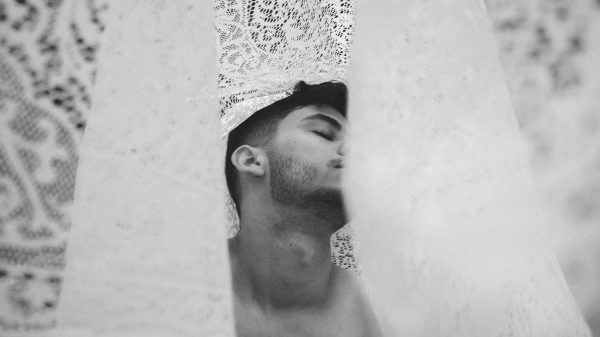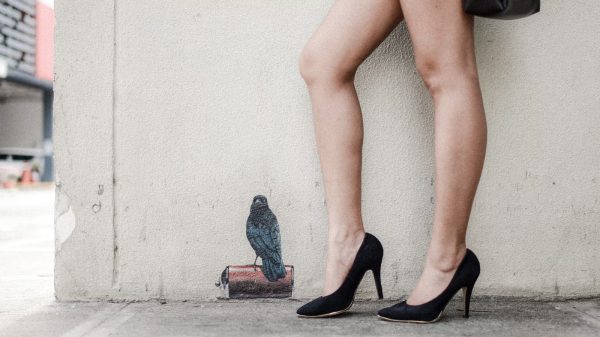This is part of “More than a Number”, which Outrage Magazine launched on March 1, 2013 to give a human face to those infected and affected by the Human Immunodeficiency Virus (HIV) and Acquired Immunodeficiency Syndrome (AIDS) in the Philippines, what it considers as “an attempt to tell the stories of those whose lives have been touched by HIV and AIDS”. More information about (or – for that matter – to be included in) “More than a Number”, email editor@outragemag.com; or call (+63) 9287854244, (+63) 9157972229 and (+632) 536-7886.
In May 2016, Jerico Tengco, 23, had tuberculosis (TB). The Department of Health (DOH) had a program then, he recalled, where people with TB were “encouraged” to also get themselves tested for HIV, so “they asked me to get HIV test”. And so, “ayun na nga, nag-positive nga (there it was, it turned positive).”
He was cognizant of his behaviors that may have led to him getting HIV. “I remember na super active ako dati sa pakikipagtalik (I remember I was very active re sex),” he smiled. “Kasabay nun, ginagawa ko, walang proteksyon (I also know I did this sans protection).”
But still, Jeric admitted “losing it” at first. “Tulala ako; di ko alam ang gagawin ko (I spaced out; I didn’t know what to do),” he said. “Super nabigla talaga ako (I was really shocked/surprised).”
Jeric immediately came out to his mom. “Kasabay nun, nag-download ako ng video about STI and HIV. Pinanood ko sa kanya. Na di dapat layuan at pandirihan.
Na-aware naman siya (With that, I downloaded a video about HIV and STI. I made her watch it. That people shouldn’t be disgusted with PLHIVs. Fortunately she gained awareness),” he said.
Two weeks later, Jeric informed other relatives. Generally, the reaction was blasé, except for “may panghihinayang na napakabata ko pa raw para magkaroon ng virus (that I am too young to have HIV).”
Unfortunately for Jeric, while the initial reaction to his HIV status seemed okay, “nagka-problema pa rin (problems arose),” he said. Particularly, “hindi ako (I’m not in) good terms with my stepfather.”
Jeric was forced to move out.
He hit rock bottom at that time. “Nakitulog sa pedicab; sa tabla na nilalatag.(I was sleeping in pedicabs; on boards that I just laid out).”
And although his initial CD4 count was over 300 (so that he’s relatively healthier than others already with AIDS), “life wasn’t that easy,” he said. “Ang dami ng mga lalakarin bago ka ma-enroll sa treatment hub. At para sa mga tulad ko, saan ka kukuha ng pera para gagamitin mo para sa labs (There were too many processes to go through before I could even enroll in a treatment hub. And for someone like me, where do we get money to use for lab tests needed before we can access TCS)?”
Jeric reached out; “nanawagan ako sa FB ng tulong (I tried to call for help in Facebook).”
It was Positive Action Foundation Philippines Inc. (PAFPI) that answered his call, specifically “pinapunta nila ako sa center para ma-asses kung ano ang mabibigay sa akin na tulong (they asked me to visit their center so they can asses what help they can give me).”
In a few days, Jeric found temporary housing in PAFPI.
PAFPI was established in September 1998 after members of the HIV community noted the lack of treatment, care and support (TCS) services in the country. The organization aimed to contribute to the national responses not only in advocacy to prevent the spread of HIV, but also in the provision of TCS for people living with HIV (PLHIV), as well as their affected families/loved ones.
Among others, PAFPI gives HIV 101 seminars/workshops (e.g. to youth and overseas Filipino workers and their families); provides temporary housing to people living with HIV (PLHIV), particularly those who were kicked out of their homes due to their HIV status; and extends support in accessing treatment, care and support (TCS) services.
PAFPI marks 18th anniversary, calls for unified responses to curb HIV spread
Jeric was able to find his footing, which – he said – is “thanks largely to the support I got (from PAFPI, among others).” In PAFPI, particularly, “hindi lang tirahan nakuha ko, pamilya rin na nakakaunawa sa akin (I just didn’t find housing, but also a family that understands me).”
Jeric also found employment in the advocacy. He is now an HIV counselor and community health outreach worker for PAFPI.
Looking back, Jeric said that – perhaps the biggest challenge for him when he tested HIV-positive – was in adjusting. “I was always anxious,” he said. This anxiety “makes one paranoid.”
Since Jeric found his footing, things “seemed to have started looking up.”
He came out to his church members (he belongs to Iglesia ni Cristo), and after coming out to them, “hind naman na-discriminate (I wasn’t discriminated).”
Jeric’s CD4 count also increased, even if in his treatment hub (i.e. San Lazaro Hospital), “wala pa ring viral load test kaya di ko pa rin alam ang VL ko (there still isn’t VL test so I still don’t know my VL).”
He was able to re-establish a relationship with his family; he now lives with his mom again.
And “may jowa na for 1 ½ month na rin (I now have a boyfriend for a month and a half).”
In hindsight, “nag-mature ako since testing HIV-positive. Naisip ko na pahalagahan ang mga magagandang nangyayari sa buhay. Dati, deadma lang, walang appreciation (I matured since testing HIV-positive. I have started appreciating everything good in life. In the past, I just ignored them, I never appreciated them). Now I appreciate everything in life.”
As a general rule, Jeric said that people should “understand the value of early detection, early treatment”. “Mas mabuting malaman mo agad ang status mo (It’s best that you know your serostatus immediately),” he said. This way, “kung reactive ka man, hindi pa sira immune system mo at may sakit ka na.o baka may multiple infections pa bago ka gagalaw (even if you turn out to be reactive, your immune system is still intact and you still don’t have infections that could kill you).”
Because in the end, Jeric said, “tandaan na may buhay after HIV diagnosis (just remember that there’s life after your HIV diagnosis).”
For people infected or affected by HIV and who are in need of help to access treatment, care and support, contact Positive Action Foundation Philippines Inc. at 2613-2615 Dian St., Malate, City of Manila; or call (+632) 404-2911 or 528-4531.

Although his initial CD4 count was over 300 (so that he’s relatively healthier than others already with AIDS), “life wasn’t that easy,” Jeric Tengco said. “Ang dami ng mga lalakarin bago ka ma-enroll sa treatment hub. At para sa mga tulad ko, saan ka kukuha ng pera para gagamitin mo para sa labs (There were too many processes to go through before I could even enroll in a treatment hub. And for someone like me, where do we get money to use for lab tests needed before we can access TCS)?”
































































